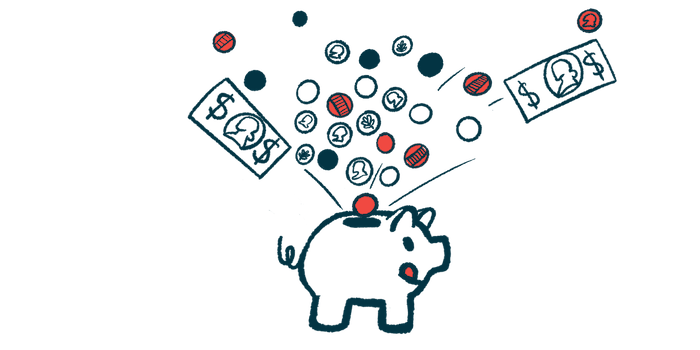NORD offering variety of patient assistance programs to cover costs in aHUS
Nonprofit's RareCare program aims to ease disease's financial burden
Written by |

The National Organization for Rare Disorders (NORD) is offering patient assistance programs specifically for people in the U.S. with atypical hemolytic uremic syndrome (aHUS), to help cover out-of-pocket medical costs and emergency nonmedical expenses in their daily lives.
These initiatives come under NORD’s RareCare program, which was created to offer various types of support to people living with rare diseases.
Two programs specifically aim to help those with aHUS: one dubbed Atypical Hemolytic Uremic Syndrome (aHUS) Premium & Copay Assistance, and the other called Atypical Hemolytic Uremic Syndrome (aHUS) Emergency Relief.
“Our RareCare program helps patients obtain life-saving or life-sustaining medication they could not otherwise afford. The program also provides financial assistance with insurance premiums and co-pays, diagnostic testing assistance, and travel assistance for clinical trials or consultation with disease specialists,” NORD states on its patient assistance programs webpage.
Patient assistance programs also aim to help caregivers
aHUS is a rare disease in which blood clots form in the body’s small blood vessels, damaging internal organs. It is driven by the abnormal activation of the immune system’s complement cascade.
Between diagnosis, treatment, emergency hospital visits, and other medical needs, the cost and burden of living with aHUS can be very high, even for those with insurance coverage. Patients and caregivers may also experience a loss of work or income due to the disease. These are issues faced by many living with chronic and rare conditions, according to a study published in 2021.
NORD’s RareCare patient assistance programs are designed to help support rare disease patients and caregivers by offering financial support, connecting patients with diagnostic testing, and providing travel assistance for clinical trials or disease specialist consultations. Additionally, NORD offers a program providing caregiver respite.
The aHUS premium and copay assistance program helps aHUS patients and caregivers cover the out-of-pocket costs associated with disease-related medical care.
Types of expenses NORD can help cover include:
- medical office visits or consults
- health insurance premiums, deductibles, and copays
- prescribed mediation costs
- lab and imaging services
- prescribed supportive therapies, such as physical, occupational, or speech therapy, as well as nutritional services.
U.S. citizens or residents of at least six months who have been diagnosed with aHUS are eligible to apply if they or their caregiver meet certain financial eligibility criteria. The financial awards are issued each year, and patients can reapply annually if they continue to need assistance.
The aHUS emergency relief program aims to help patients and caregivers pay for unexpected or emergency non-medical expenses that are necessary for daily life.
Among the expenses NORD can help cover are:
- repair costs for cars, homes, and major appliances
- unexpected bills that are not affordable due to lost wages related to aHUS illness or caregiving.
Other types of emergency requests will be considered on a case-by-case basis, according to NORD. Patients and caregivers in need can apply online.
Individuals who need help with either application or have additional questions can also email NORD’s aHUS program.
NORD also offers other types of assistance programs that are not specifically targeted for aHUS, but that are intended to help all families affected by a rare disease.
That includes its Rare Disease Educational Support Programs, which aim to help patients and caregivers participate in rare disease educational programming, such as conferences or workshops, by covering some costs for registration, lodging, and travel.
Patients, immediate family members, and caregivers in the U.S. may be eligible, but interested individuals should contact NORD by email or phone (860-556-2208/203-635-7486) and speak with a patient service representative who can guide them on whether the education programming they’d like to attend might be covered. Awards are granted on a first-come, first-served basis.
A Caregiver Aid program is also available to provide caregivers with the financial support necessary to take a needed break. The funding, also available on a first-come, first-served basis, provides funds for hiring a short-term respite caregiver. Interested caregivers who are providing full-time, unpaid care to a rare disease patient should contact NORD via email or phone (203-616-4328) to apply.





